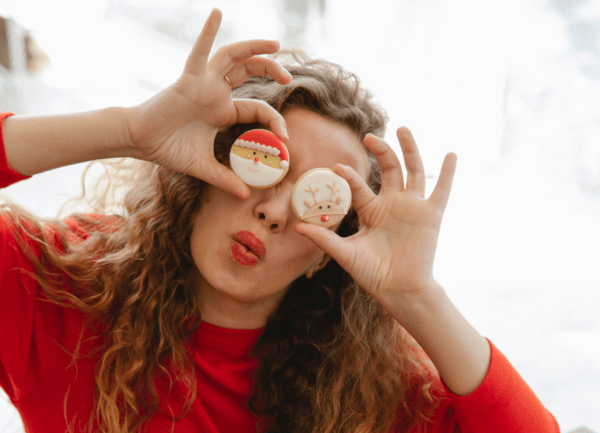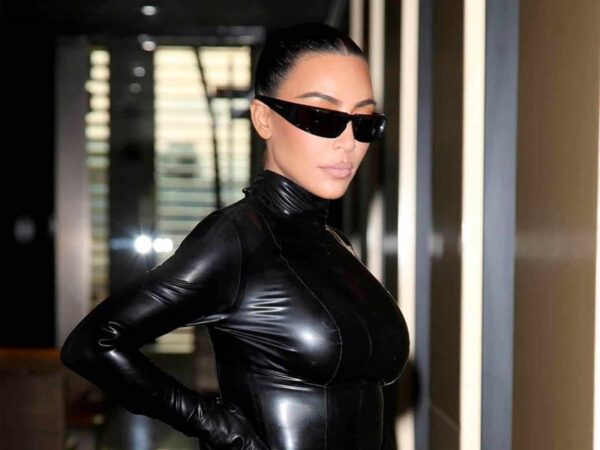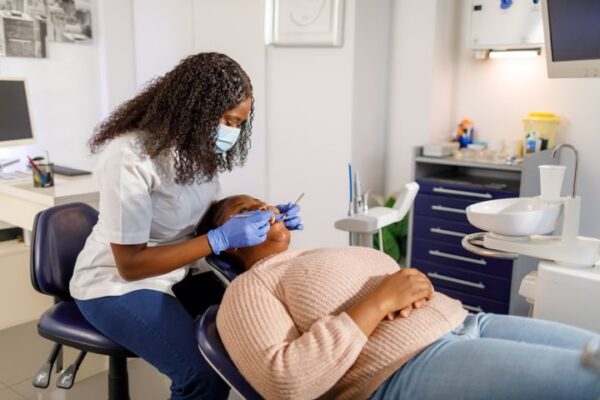
Ways Festivities Can Affect your Eye Health and How to Protect Them

As we prepare for the festive season, it’s good to keep your eye care in mind. From bright lights to late-night celebrations, there are so many factors that could be affecting your eye health without you being aware of them.
Nimmi Mistry, a professional services optician at Vision Direct, shares five ways in which the holiday festivities can affect your eye health and how to protect them.
1. Increased alcohol consumption leaves eyes dehydrated
During Christmas and New Year’s celebrations, it’s common for adults to drink more alcohol than usual. However, it is crucial to remember to take it easy and not overdo it when drinking.
Consuming alcohol not only impairs coordination and balance, heightening the risk of accidental injuries that may impact the eyes, but it is also a diuretic. This means it removes water from your body, leading to dehydration, which, in turn, can affect the quality and quantity of your tears.
To maintain a responsible drinking pace, consider alternating between alcoholic beverages and soft drinks, and drink more water. It’s recommended that adults consume a minimum of 2 litres (equivalent to 6-8 glasses) of water daily. This is not only beneficial for your overall hydration but also crucial for keeping your eyes well-hydrated and healthy.
2. Dry heat causes dry eyes
Sitting next to an open fire or turning up the central heating this time of year is an essential way to stay warm. However, the increased dry, warm air during the winter months can cause a loss of moisture in our bodies. You may have already noticed this on your skin and lips, but it also causes moisture loss in your eyes too. Many will find that during this time of the year, they experience symptoms such as transient blurred vision, stinging, scratchy or a burning sensation of their eyes-all signs indicative of dry eyes.
Dry eyes may not sound very serious but, if left untreated, severe dryness may increase your risk of eye infections with potential to cause visual changes in adverse cases. To avoid this, it is recommended that people take conscious steps to protect their eyes during this time of the year.
Consider purchasing a humidifier. It can prevent your tears from evaporating – keeping your eyes moist. Plus, it’s helpful for relieving congestion, which is a common symptom of winter viruses.
If you find your eyes are more susceptible to getting dry, it is advisable to use eye drops to provide additional lubrication. You can buy eye drops online or off the shelf in most supermarkets and high street pharmacies without a prescription. Be sure to consult your GP/pharmacist or opticians if in doubt.
3. Lack of sleep from the party season wreaks havoc on our vision
Parties and festive activities hold significance for many during the holiday season, providing an opportunity to feel socially connected and relish moments with friends and family. However, staying out late comes at a cost, especially concerning the well-being of your eyes if you are not getting enough sleep. A lack of sleep can impact the health of your eye, through dryness, blurry vision, and strained eyes.
Aim for 7-9 hours of sleep per night, which is what the average adult requires to function optimally. When you sleep, the body’s natural tear production helps keep the eyes moist and nourished.
4. Binging Christmas movies can lead to digital eye strain
During this time of the year, many of us increasingly find ourselves glued to screens, whether it’s for watching movies, shopping online, participating in virtual gatherings or playing video games we are gifted at Christmas. Exposure to extensive screen time can give to rise to digital eye strain (computer vision syndrome), which includes symptoms of intermittent blurring, dryness, asthenopia (screen-induced headaches) and photophobia (light sensitivity). The symptoms of this can include photophobia, dry eye and headaches.
Also, recent studies have shown that when we use a screen we tend to blink less, leaving our eyes less lubricated, feeling dry, sore and tired
Looking at a screen that emits intense light while having to focus on different distances requires a lot of effort over the typical working day. This, coupled with glare from screens, can cause distress to your eyes.
To prevent your eyes from suffering, it’s recommended to follow the 20-20-20 rule. This involves taking screen breaks every 20 minutes and looking at a fixed point 20 feet away for 20 seconds.
5. Sharing makeup and not removing makeup
Undoubtedly, many people will be dressing up for office parties and socials but as the night comes to an end it’s important to remove all eye makeup before going to bed.
Makeup debris and particles can enter your eyes which may lead to irritation and the scratching of the surface of your eyes. When the cornea gets scratched, most commonly through applying eye make-up, you may find yourself with a corneal abrasion. If left untreated, it can act as a host for potential bacteria, leading to infections, including keratitis. A study stated that infectious keratitis is among the top five leading causes of blindness globally.
Before you remove your makeup be sure to wash your hands to prevent the spread of bacteria. You should consider using cleansing water and cotton pads to remove the first layer of makeup and then use a cleanser to wash away the oil, pollution, and stubborn build-up.
Avoid sharing your mascara, brushes, eye shadow and eyeliner to prevent the risk of spreading eye infections like conjunctivitis. Normally self-limiting, bacterial conjunctivitis may require treatment if symptoms persist for more than two weeks; be sure to see your opticians or pharmacist. If you wear contact lenses, bacterial build-up can cause irritation, so refrain from wearing them until your eyes have fully recovered and dispose of infected cases and lenses.
6. Visual hazards that come with the winter
As people travel for the holidays, many of the UK’s roads will experience increased traffic. The winter season introduces potential hazards that make it hard for drivers to see clearly. For example, the reduced daylight during this season can limit visibility. Glare from streetlights and car headlights can severely hinder the ability to predict oncoming traffic.
When driving during the day, the low winter sun can create intense glare, which not only impacts the driver’s visibility, but the UV rays have potential damaging effects. The sunlight strikes the windshield at a sharper angle, impairing vision and making it difficult to see the road ahead. To mitigate against this issue, it is recommended to wear sunglasses with polarised lenses. These sunglasses should also bear the CE mark and meet the European Standard BS EN 1836:2005, ensuring they provide adequate protection against UVA and UVB rays. Do remember to take them off once it gets dark, though.














































